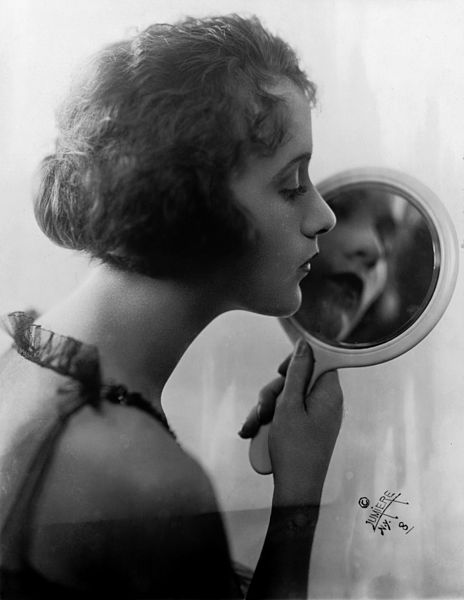A Zen monk once asked his teacher, “What is the essence of Buddhism?”
The teacher replied, “Attention.”
The monk said, “Is that it?”
The teacher answered, “Attention. Attention. Attention.”
The contemporary Vedanta teacher James Schwartz wrote in his book, Experience and Knowledge, “What you willingly pay attention to is what you love.”
Attention is a rare and capricious energy. Anyone who has practiced a form of silent meditation or struggled to quiet the mind during savasana knows how quickly attention shifts from one thing to the next.
Just like yours, my mind is seldom quiet. Every evening at the end of practice, lying in corpse pose, I seek to slow down and focus on my breath, but thoughts come unbidden.
What’s in the refrigerator?
I love this song (and I start singing along silently).
I need to buy more coffee. And yoghurt. And, and…
You’re wasting this moment by not focusing.
What can I say after class to the amazing yogini next to me?
I’m really hungry.
And my shoulders are sore.
Just focus on your breath, damn it!
And that’s within the first 30 seconds.
In ordinary life, just as in savasana, the energy of attention shifts and flows, and with the exception of meditators and yogis, few of us make any attempt to focus it.
Love and meditation may not be equivalent, but they share at least one thing in common. Both require attention. And the focus of our attention reveals what we value most and who we are.
What we pay attention to is what we love. This truth is rather obvious when you think about it. Even if the focus of attention is bad for you or caused pain in the past, even if the attention is not returned or is something you claim to hate, if you willingly pay attention to it, you are giving it love.
If you remain unconvinced, consider the common complaints folks have about their lovers.
He ignores me.
She doesn’t answer my texts.
He games all night and hardly speaks to me.
She’s on her phone constantly and doesn’t hear a word I say.
Complaints like these express something simple and real: If we do not receive attention from our lover (or parents, or friends), we do not feel loved.
I have experienced the extremes of the attention spectrum, both giving and receiving.
One lover, years ago, wanted constant contact. She sought to be by my side at all times, texted throughout the day, and would have followed me into the toilet had I let her. At the other end of the spectrum, another lover willingly gave me her attention only when we were physically together. Good morning and goodnight text messages bored her, and she preferred only one phone conversation between our weekends together.
My overly-attentive lover embodied one extreme: a clinginess and near obsession that is unhealthy, unattractive, and exhausting. On the other extreme, my non-attentive lover desired to have an “adult” relationship that acknowledged how we led separate lives. And while a middle path is infinitely preferred to either, I can say this: I never doubted the love of the former, while the latter hardly felt like a relationship, let alone love.
Attention is the sustenance on which all relationships thrive, and intimacy is not possible without it. To love is to pay attention. This is what the Buddhist author John Tarrant meant when he wrote “Attention is the most basic form of love.”
It is also an excellent barometer for whether or not a relationship is thriving. This is true for love relationships and for all relationships.
Our attention is precious. It is perhaps the single most powerful energy we have. And yet we give it so lightly. We give it to social media and to the endless stream of entertainment and info-tainment that pours from our tablets, phones, and PCs. We offer it freely to people who don’t value it. And we sell it to solve the problems of others and call it “my job.”
We do this for countless reasons. The realities of living in this world create immense demands on our attention. We all have a number of daily “must-do” items; accomplishing only these essentials can be complex and stressful. And for those of us who endeavor to do more than complete the mere essentials, who pursue success or seek to leave the world a better place, the demands on our time—our attention—can be so extreme that when the day is done, we have nothing left.
Those to whom we are closest are so often the last to receive our attention. They are last because, well, they can wait. We think they can wait and they will forgive us, for they understand that our attention is needed elsewhere. That is likely true for most. But just as plants wither in the absence of the sun, so too do our close and intimate relationships wither when starved of the glow of our attention.
So let’s pause. Let’s pause and bring our awareness to attention itself, and in doing so, discover where exactly we’re expending our energy. When we direct our attention to attention itself, we have an opportunity for self-honesty. By being aware of your attention, if you are honest, you will discover just how much attention you give to your lover. Or spouse. Or children. Or practice.
Or your self.
Yes, if what you pay attention to is what you love, then first give attention to your self! That can be to the self that you identify with, your body and its wants, and your ego and its desires. Or, you can direct attention to your self—to the you that does not change, that is eternal and timeless and knows no end.
The first is a path to a healthier life. The second is the road to freedom. Either way, you come out ahead.
~
Author: Todd Schuett
Image: Wikimedia Commons
Editor: Catherine Monkman
Copy Editor: Nicole Cameron
Social Editor: Danielle Beutell







Read 0 comments and reply